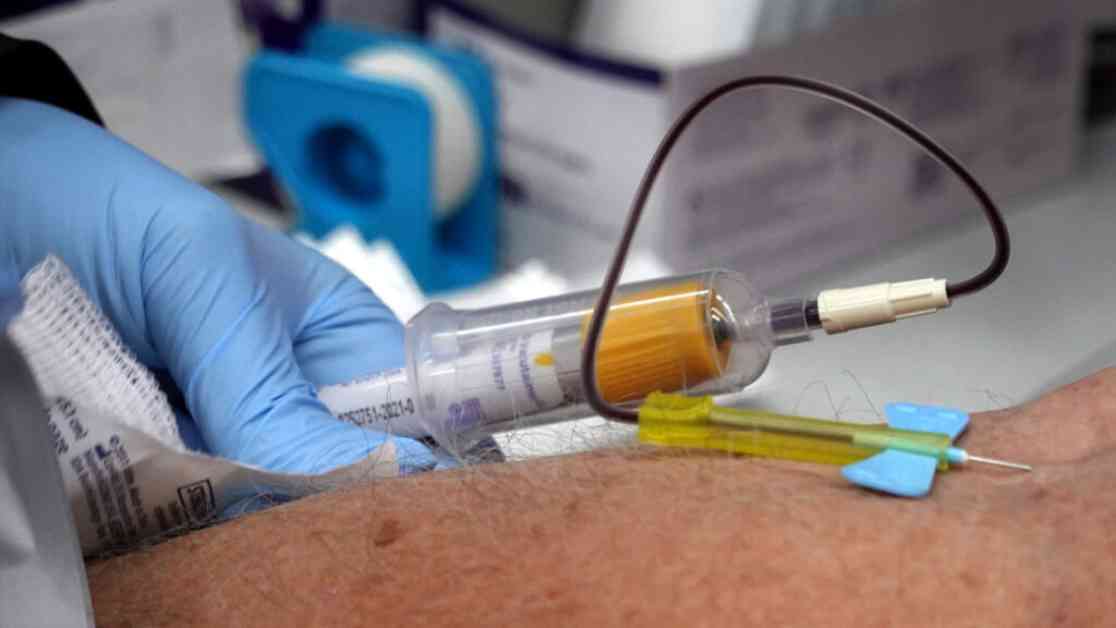The Food and Drug Administration gave the green light on Friday for the first blood test to diagnose Alzheimer’s disease, providing a faster way for patients to identify the neurological condition and start treatment. This test, created by Fujirebio Diagnostics based in Japan, utilizes a blood sample to pinpoint the presence of amyloid plaques in the brain that are believed to be associated with Alzheimer’s. Previously, detecting amyloid required costly and inconvenient PET imaging scans of the brain, or more invasive tests on spinal fluid.
The FDA’s approval of this blood test is a significant development in the diagnosis of Alzheimer’s disease, aiming to make it more accessible to patients in the U.S. at an earlier stage of the disease. Michelle Tarver, director of the FDA’s Center for Devices and Radiological Health, highlighted the importance of this clearance in advancing the diagnosis of Alzheimer’s and potentially improving outcomes for patients. With nearly 7 million Americans currently living with Alzheimer’s and that number expected to double in the coming years, the need for early detection and treatment is crucial.
Biogen and Eisai, along with Eli Lilly, are the pharmaceutical companies behind the two approved drugs for Alzheimer’s disease in the U.S. Despite the availability of these treatments, challenges in diagnosing the disease early enough have limited their effectiveness. Biogen’s head of development, Priya Singhal, and Lilly both welcomed the FDA’s approval of the blood-based test as a significant step forward in facilitating timely diagnosis, particularly in primary care settings where cognitive decline is often first noticed. Jason Karlawish, a professor specializing in Alzheimer’s research at the University of Pennsylvania, expressed optimism about the potential of the test to enhance the diagnostic process, but also cautioned against inappropriate prescribing practices due to the ease of ordering the test compared to engaging with patients.
Lilly has recently taken steps to improve access to diagnosis by partnering with a telehealth company to connect patients with Alzheimer’s diagnosis and treatment options. This initiative is part of a broader trend in the pharmaceutical industry towards direct-to-consumer approaches, raising concerns among experts about overprescribing and inadequate care. The FDA-cleared test from Fujirebio measures levels of two proteins in human plasma, providing a numerical ratio that indicates the presence or absence of amyloid plaques in the brain. While other companies have developed similar blood-based tests for Alzheimer’s, Fujirebio is the first to receive clearance from the FDA, demonstrating the potential for more accessible and efficient diagnostic methods in the future.


















